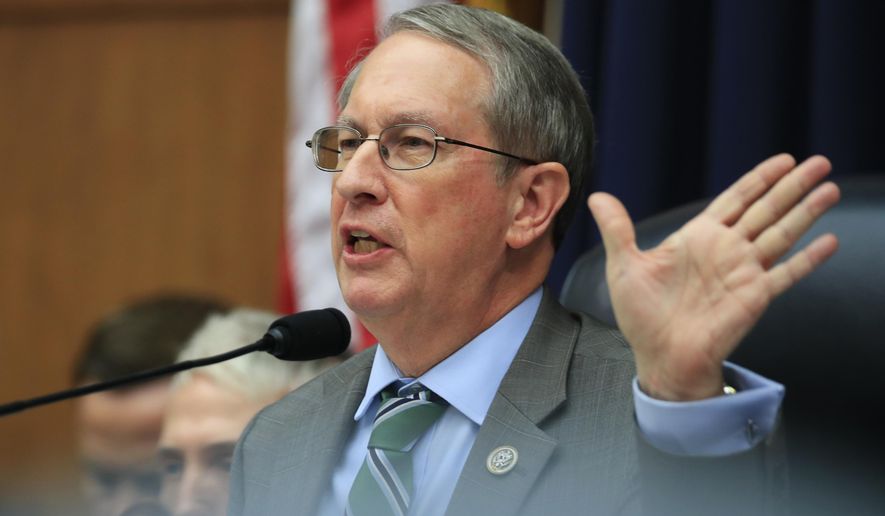A House Judiciary Committee hearing Tuesday on monitoring social media content immediately broke down into partisan bickering and theater Tuesday, with minority Democrats and some spectators trying to jerk the proceedings back to President Trump’s press conference in Helsinki.
Republican Rep. Bob Goodlatte of Virginia opened the hearing by noting Facebook recently censored a Texas newspaper’s posting of quotes from the Declaration of Independence, which a company algorithm flagged as hate speech.
“The online environment is becoming more polarized — not less; and there are concerns that discourse is being squelched — not facilitated,” Mr. Goodlatte read in his opening statement. “Moreover, society as a whole is finding it difficult to define what these social media platforms are and what they do. For example, some would like to think of them as government actors, as public utilities as advertising agencies, or as media publishers — each with its own set of legal implications and potential shortfalls.”
After noting “the platforms need to do a better job explaining how they make decisions to filter content and the rationale for why they do so,” Mr. Goodlatte turned the hearing over to a minority member, Democratic Rep. Jamie Raskin of Maryland.
Openly seething, Mr. Raskin proceeded to blister the committee for a hearing he said was based on “pure fantasy.”
Rather than look at imaginary concerns as conservative blacklists on social media platforms, Mr. Raskin said the committee should focus instead on the “real crisis caused yesterday by President Trump,” who infuriated liberals and some Republicans by saying he believed Russian President Vladimir Putin’s claim in Moscow that Russia did not meddle in the 2016 U.S. elections, contrary to the American intelligence community’s findings.
When Mr. Raskin asked for the routine entering of his opening statement to be entered into the record, a Republican member objected, saying Mr. Raskin’s furious comments were “wholly outside the scope” of the hearing, but after Mr. Goodlatte said he saw no reason to deviate from custom, the objection to entering the statement was withdrawn.
Mr. Goodlatte began by questioning the trio of witnesses, executives with Facebook, Twitter and YouTube, but as soon as the initiative was passed to the Democrats, ranking member Rep. Jerrold Nadler immediately moved to suspend the hearing for a closed-door discussion of the alleged “emergency” he claimed is engulfing the nation after Mr. Trump’s press conference. That motion failed 12-10 on a party line vote.
Mr. Nadler then launched into questions about Russian “attacks on our democracy.”
The witnesses, executives with Facebook, Twitter and YouTube, acknowledged they had identified some accounts run by Russian hackers during the 2016 election, although they characterized them as minor, with Juniper Downs, a YouTube executive, mentioning a mere $5,000 in spending.
The hearing is the committee’s second on the topic of social media giants alleged muzzling of conservative voices, either through “shadowbanning” or outright exile of some viewpoints. In April, at the first such hearing, members heard from Diamond and Silk, two African-American women who support Mr. Trump and have accused Facebook of limiting their access to the platform or blocking or censoring their content. Hours before Tuesday’s hearing commenced, the bloggers released a short video claiming such problems persist.
The women posted their video on their Facebook page and on Twitter.
• James Varney can be reached at jvarney@washingtontimes.com.




Please read our comment policy before commenting.